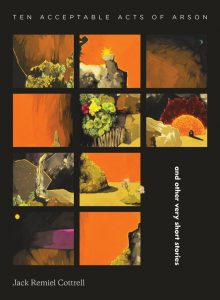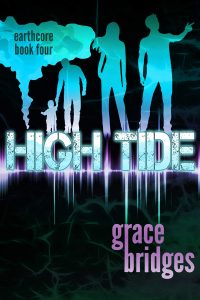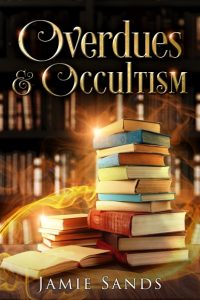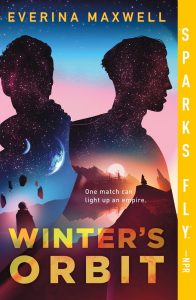Once upon a time…
That’s the start of a fairy tale, right? Well…
Once upon a time, a position espoused by the American right wing—the Republicans, the conservatives—was that the government should keep its nose out of personal life, that it had no business getting involved in decisions people make regarding their families.
What decision could possibly be more intimately connected to family life than whether or when to have children?
But if the religious zealots making up the majority of the U.S. Supreme Court strip away the right to abortion, more than half of the state governments will soon be making very intrusive decisions about what pregnant women can and can’t do.
So here’s the fairy tale: that the anti-abortion movement is pro-life. It isn’t. [1] Their theology is debatable, too. [2]
Here are a few more fairy tales: that the right wing is conservative. It isn’t. [3] That America is the land of the free. It isn’t. [4] That the move to restrict abortion rights is anything other than a naked power grab to control women.
Life in the U.S. is already damned hard on transgender children, people of colour, and anyone carrying an unwanted foetus. If the Supreme Court axes abortion rights that are based on an implied right to privacy in the 14th Amendment, other related rights could also be stripped away. They already have their sights on gay marriage. And contraception. [5]
I live in New Zealand, so why should I care about the U.S. Supreme Court? Because—even if I didn’t have family and friends in the U.S., quite a few of them either queer, trans, or women of childbearing age—the U.S. is the 800-pound gorilla. Whatever happens there spills over into the rest of the world. You have to look no further than the MAGA-hat-wearing, Trump-flag-waving covidiots present in the recent NZ parliament occupation to see that. Right wing authoritarian campaigns all over the world have been emboldened by the decline in American democracy.
That’s why this poem seems particularly pertinent right now:
First they came for the socialists, and I did not speak out—
Because I was not a socialist.
Then they came for the trade unionists, and I did not speak out—
Because I was not a trade unionist.
Then they came for the Jews, and I did not speak out—
Because I was not a Jew.
Then they came for me—and there was no one left to speak for me.
— Friedrich Gustav Emil Martin Niemöller, German Theologian writing about the Nazi’s rise to power.
I’m a woman, a feminist, a liberal, a Unitarian. Authoritarians don’t like me, either.
So, my American friends, in this year’s elections, get out and vote as if your life depends on it. Because it does.
[1] Pregnancy is dangerous, especially for poor women. Do the anti-abortionists care about the life of the mother? Apparently not, given the proposed laws that don’t allow for any exceptions—not for rape, not for incest, not for the mother’s health. And they don’t appear to give a shit for babies once they’ve been born, either.
Here are a few things that would be pro-life: Abolition of the death penalty. Strict gun control laws. Widespread access to inexpensive pre-natal health care. Parental leave commensurate with parental leave in other wealthy countries. Continuation of 2021’s expanded Child Tax Credit. Don’t hold your breath waiting for any of those.
[2] The Christian Bible doesn’t outlaw abortion. The few places it says anything related (not nearly as many references as, say, explicit passages stating the government’s obligation to help the poor), some can be read as pro-choice, some as anti. But, their argument goes, we know more science now than we did when the Bible was written, and we now know that life begins at conception.
But here’s the thing: this “scientific” argument only goes halfway into what we now know from the science. Only about one-third of fertilised eggs ever come to term. Most are flushed before the mother ever knows she’s pregnant. So tell me again that it’s God’s will that every fertilised egg should produce a baby?
[3] The right wing has ruined the word conservative. The Cambridge English dictionary’s first definition of conservative is “not usually liking or trusting change, especially sudden change.” By that definition, stripping away a right the American public had until the mid 1800s, and has had again for the past fifty years, is hardly a conservative position. The right wing wants to turn America into something it has never been: a religious theocracy. The Founding Fathers—many of them Deists or Unitarians, not believers in the divinity of Jesus of Nazareth—were quite clear about the separation of church and state. (And I won’t call their theocracy a Christian one, because their theology bears little resemblance to the compassion at the heart of Christ’s teachings.)
[4] The so-called Land of the Free has the highest incarceration rate in the entire world. And then there’s this, by David Bentley Hart in Commonweal magazine, who says it much better than I can:
Americans are, of course, the most thoroughly and passively indoctrinated people on earth. They know next to nothing as a rule about their own history, or the histories of other nations … Chiefly, what they have been trained not to know or even suspect is that, in many ways, they enjoy far fewer freedoms, and suffer under a more intrusive centralized state, than do the citizens of countries with more vigorous social-democratic institutions. … An enormous number of Americans have been persuaded to believe that they are freer in the abstract than, say, Germans or Danes precisely because they possess far fewer freedoms in the concrete. They are far more vulnerable to medical and financial crisis, far more likely to receive inadequate health coverage, far more prone to irreparable insolvency, far more unprotected against predatory creditors, far more subject to income inequality, and so forth, while effectively paying more in tax (when one figures in federal, state, local, and sales taxes, and then compounds those by all the expenditures that in this country, as almost nowhere else, their taxes do not cover). … One has to ask, what state apparatus in the “free” world could be more powerful and tyrannical than the one that taxes its citizens while providing no substantial civic benefits in return, solely in order to enrich a piratically overinflated military-industrial complex and to ease the tax burdens of the immensely wealthy?
[5] You would think, wouldn’t you, that the people the most concerned about eliminating abortions would have a stake in reducing the number of unplanned, unwanted pregnancies? And that the logical steps towards that would be making inexpensive contraception and real sex education (proven to be more effective than that abstinence-only rot) widely available? Apparently logic isn’t their strong suit. The fact that many of them consider contraception itself a sin gives away the game that this is about controlling sexuality, not saving babies.










